Rana Naidu Season 2 Is Meandering But Still Explosive
Rana Daggubati’s bat-slinging fixer returns with a pocketful of problems, provocations and tonal pirouettes that just about keep the series ticking.
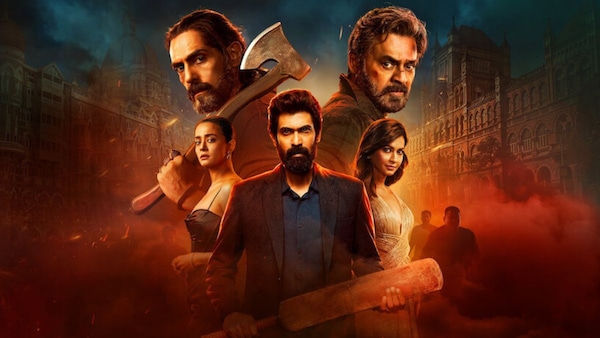
Promo poster for Rana Naidu season 2.
Last Updated: 03.30 PM, Jun 14, 2025
"MUMBAI ki galli mein khela naa. Straight drive ke alava kuch ataa hi nahi”, a bullish antagonist states philosophically in a scene from the second season of Netflix’s Rana Naidu. It’s one of those sequences that underlines what’s so vexing yet fascinating about shows that operate at the edge of decency. A single line of dialogue, written at the right meter, can unfurl an entire lifetime. Here, it offers a backward glimpse into the life of a man shaped by the streets he could never escape. It’s the kind of bold, erratic writing that makes Rana Naidu one of those shows that’s never profound but never quite dull either. In its 8-episode second season, this wild, full-metal adaptation of Ray Donovan loses some of its scandalous steam, but retains the raunchiness that makes it a bit of an outlier in the Indian streaming space.
Rana Daggubati returns as the Hyderabadi fixer who operates within the glittering circles of Mumbai. The first season saw him face up to his rowdy father (played by real-life uncle Venkatesh Daggubati) and eventually coalesce into an uncomfortable truce. In this second season, new villains crop up, brothers become foes — almost like an extension of the twisted circle of hell that is the Naidu family — relationships break, and a whirlwind of passable action sequences set inside neon-lit corridors fills whatever vacuum, the lack of pause perpetuates. It’s high-octane, balls-to-the-wall all the time.
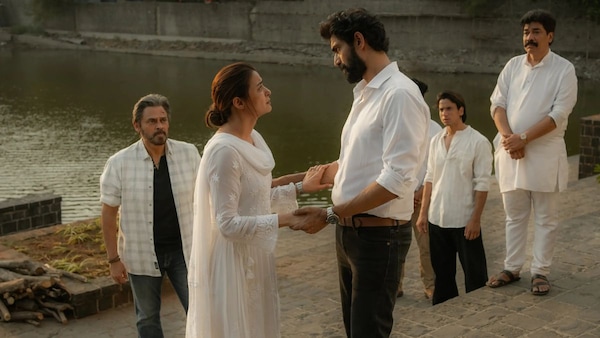
A lot is happening in this second season. Naidu’s wife, Naina (Surveen Chawla), seeks solace in the arms of another man (Dino Morea). Rana’s brothers — played by Sushant Singh and a terrific Abhishek Banerjee — square up to their brother’s history of violence and negligence while ironically, working with the toxic father who has reduced the lot to bumbling, rage-prone kettles of boiling flesh. Arjun Rampal, Rajat Kapoor and a host of other actors add to the buffet table, a generous sampling of sub-plots, micro-narratives and perversions. Rampal is particularly impressive.
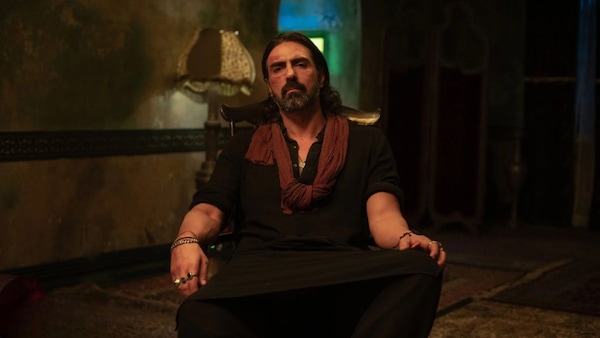
Perversion is almost critical to the DNA of this show and the vitality of its many broody proclamations about the nature of men and their desires. Testosterone doesn’t just power the bone-crunching action, it also shapes the lens this world emerges from. In one scene, a young boy’s birthday cake turns into an accidental pun by falsely outing him, of a closet he never occupied. In another, Banerjee’s Jaffa, touches himself from behind the glass of his office wall while a young woman practises martial arts inside his facility. True to the show’s deranged designs, rather than confront, this woman slides into more than just his DMs.
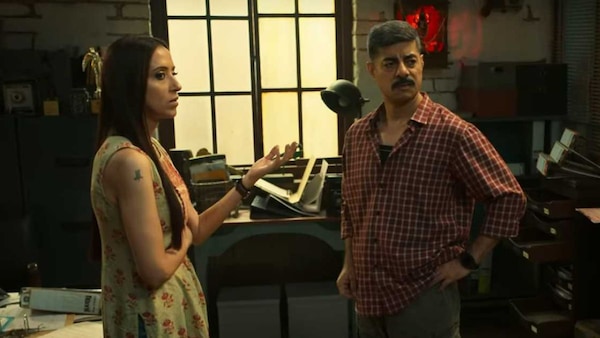
Created by Karan Anshuman, who has a knack for building bilious worlds punctuated by boorish, reprehensible men, Rana Naidu’s strengths are also its weaknesses. For one, it boasts a terrific ensemble of actors who commit to the gross unfairness of a world they are each trying to break their way. It’s not luck these people are after, but the affirmation that would eventually crown their male egos. But this delectable platter of actors and characters is often bogged down by lateral writing. Nothing is ever built, nor positioned as the culmination of something. Life just keeps happening to people with this strange, uncontrollable sense of entropy. Even though everyone claims to be in control, the status quo seems forever out of reach. Including, for the main man of the show, the chiselled, self-serious bummer, Rana Daggubati himself.
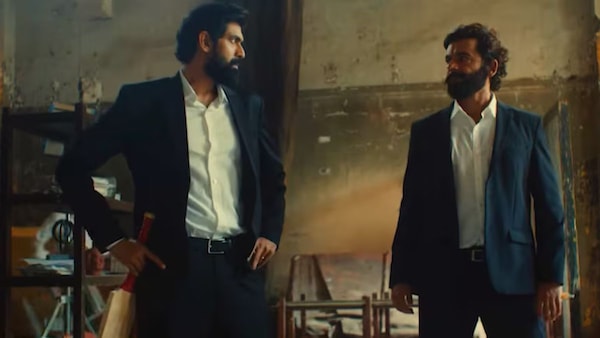
Rana’s casting is an off-field choice. He doesn’t have the muscular configuration of a fixer, nor the personality of an overachiever who actually enjoys his spoils of war. Between quiet foreboding and maybe even unaddressed guilt, his self is a complicated artefact acting in the service of masculinity. It’s his job to be tough, but that unshakeable gaze obscures rather than reveals anything about the man’s inner life. The season begins with Naidu’s son being kidnapped, before settling into the uppity rhythm of trying to speed over a bunch of recurring speed breakers. It’s the classic push-cancels-shove storytelling where dice are cast, proclamations are made, and yet nothing seems to change. Naidu is caught in a rat race — run by lions — of his own making. It might not be compelling as a foundational idea, but it is enjoyable for the unruliness it feeds upon.

The second season of Rana Naidu isn’t as wild as the first one, but it knows how to turn up the dials of provocation. Naidu’s fate and his inability to fix everyone’s problems but his own are a testament to the show’s capacity to facilitate entertainment, without ever really finding its soul. For all the bat-slinging violence on display, this show also cries out for a hint of softness, to maybe let one delivery go untouched. Choose your moments to fight rather than fight against every moment. Some restraint, some focus on the softer aspect of hard men, would be a welcome addition to a world that grows on you despite its most rude selves. Or maybe because of it.
Rana Naidu season 2 is currently streaming on Netflix.
